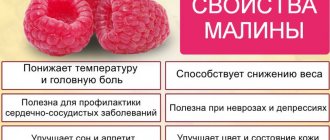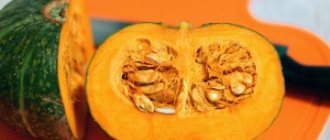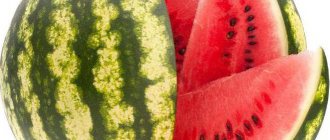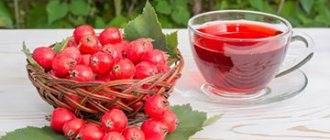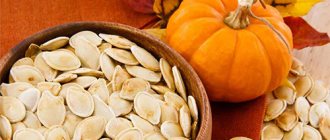While breastfeeding the baby, the mother should carefully select the foods she is going to consume. The quality of breast milk will depend on them, bringing all the beneficial vitamins and minerals into the baby’s body. Thanks to carefully selected food, the female body can quickly recover after childbirth. An important role is played by the acquisition of the previous slender figure.
During the first two months after the baby is born, a woman should be careful in the selection of dishes. During this period, adaptation occurs, so foods can be gradually introduced into the diet over time. It is important to always pay attention to the baby's reaction. If you have colic or diathesis, you are not allowed to continue eating this or that dish.
Nutritionists recommend excluding salty, fried, fatty and spicy foods from your diet. They negatively affect intestinal function and can lead to poisoning. It is important to eat a varied diet when breastfeeding. Excessive consumption of one dish is not allowed, because it can cause allergies. Eggplants during breastfeeding are a favorite product that has a positive effect on the mother’s body.
The vegetable can be eaten when the baby is 3 months old.
What is the importance of vegetables during breastfeeding?
Most vegetables are very healthy for both mothers and babies. They contain a lot of vitamins and nutrients. They can be consumed raw, boiled, stewed or baked. Fresh fruits help normalize digestion and prevent constipation. In winter, it is advisable to eat freshly frozen vegetables. Because they are more useful than those that supermarkets offer us. Moreover, imported vegetables are often treated with chemicals to preserve their presentation, and this is very harmful to the baby.
Are there any benefits to eating eggplant while breastfeeding?
Can a nursing mother eat eggplants, and what are the benefits of them? With regular consumption of this vegetable we can:
- Reduce the risk of cardiovascular diseases. It helps strengthen the heart muscle.
- Lower cholesterol levels. Prevents the absorption of the latter in the intestines.
- Helps fight osteoporosis, promotes the restoration of cartilage tissue.
- Restore water balance, relieve swelling, improve kidney function. Creates a diuretic effect.
- Remove toxins from the body. Helps cleanse the gastrointestinal tract.
Can breastfeeding women eat eggplant?
Answering this question, we can say that eggplant is not on the list of prohibited foods during lactation; on the contrary, it is a desirable vegetable. Based on research from the Institute of Nutrition of the Russian Academy of Medical Sciences, a list of nutrients necessary for the normal growth and development of a child was compiled.
Can a nursing mother eat eggplant? Eggplant is a very rich fruit; it contains all the substances listed below, and all of them are necessary for both the child and the mother. Eggplant for a nursing mother is a storehouse of useful elements and vitamins.
- It contains a lot of potassium, which has a beneficial effect on the functioning of the heart.
- This vegetable contains copper (Cu), phosphorus (P) and iron (Fe) necessary for the growth and development of a child.
- Eggplant is rich in nicotinic acid, vitamins C and A, B, including riboflavin (B2) and thiamine (B1).
This means that the answer to the question “can a nursing mother eat eggplant” is unequivocal - it is possible and even necessary.
Important! Young fruits contain much more useful substances and microorganisms. The older the vegetable, the more harmful and toxic it is.
Eggplant: rich composition and beneficial properties
Including vegetables and fruits in the menu of a nursing woman is not an easy question. Breastfeeding should provide the baby with complete, nutritious and healthy milk. It is important to avoid the development of allergies in both mother and child. Let us remember that their health during the period of breastfeeding is closely interconnected.
Eggplant, or dark-fruited nightshade, is a berry of a herbaceous plant from the genus Solanaceae, native to South Asia and India. The Arabs, who call this fruit the vegetable of longevity, were the first to use it for food more than a thousand years ago. Eggplant, 100 g of which contains only 22.6 kcal, is rich in many biologically active substances:
- Vitamins C, A, B1, B2, PP, B6, necessary for nursing women, and folic acid. B vitamins play an important role in the synthesis of protein, enzymes, hemoglobin and glutamic acid, reduce cholesterol levels in the blood, improve the functioning of the heart muscle, immune system, and normalize metabolism. Folic acid, the daily requirement for a nursing woman is 200-400 mcg, is important for the normal development of the child’s nervous system, the prevention of postpartum depression and various types of anemia. 100 g of eggplant contains 18.5 mcg of folic acid. All this suggests that eating eggplant is beneficial for a nursing mother. The vegetable is necessary to restore her health and ensure the proper development of the baby.
- Macroelements (calcium, potassium, magnesium, phosphorus, sodium, sulfur, chlorine) and microelements (aluminum, zinc, boron, iron, iodine, copper, manganese, fluorine) are necessary for hematopoiesis, bone tissue formation, intramuscular conduction, protein synthesis and energy in the child’s body and compensation for substances lost in the mother’s milk. In particular, potassium improves heart function, and zinc, iron and manganese are especially necessary for the prevention of anemia, so eggplant is useful for nursing women to eat.
- The vegetable contains dietary fiber necessary to prevent constipation.
- Contains organic acids.
- Pectin, which stimulates digestion, helps eliminate cholesterol. In addition, it is a choleretic agent.
Eggplants also have a mild diuretic effect and help remove toxins, heavy metal salts, and radionuclides from the body. The active components of the fetus contribute to the breakdown of fats and the maintenance of water-salt balance and acid-base balance in the body, which is very important for a woman and a breastfed child. The vegetable helps normalize intestinal function, prevents constipation, anemia and even diabetes, and has a beneficial effect on the functioning of the immune system, liver, heart and kidneys in both the mother and the infant.
How to properly introduce eggplants into a nursing diet
You should choose high-quality, fresh and proven vegetables. There are several rules for introducing eggplant into nursing recipes.
- You can safely eat eggplant while breastfeeding if you ate it before the baby was born and the vegetable did not cause any allergic reactions.
- If during pregnancy there were no eggplants in your diet, then a nursing woman should introduce it into the menu gradually and carefully. And when eating, carefully monitor how the baby reacts to the new product. If no deviations or reactions occur, then you can safely, without fear, eat it.
Harmful factor of eating eggplant
It is allowed to eat this type of vegetables only if the baby does not have rashes or problems with stool. If such manifestations occur, then you should not forever say: “No to eggplants!” The experiment with use can be continued again in a few weeks. Most often, even after the first use, there are completely no negative manifestations. In this case, the healthy vegetable can be eaten in moderation by a nursing mother.
Stewed eggplants should be eaten from the age of three months. During this period, the necessary enzymes will have time to form in the baby’s body.
The bitterness will go away if you first fill the eggplant with water.
Only fresh and juicy vegetables are allowed to be consumed. For children under one year old, it is important to wash all vegetables well before eating. They cannot be eaten without the necessary heat treatment. The fried version of the dish often causes heartburn or severe upset. When baking, you can use olive oil and a little fragrant herb.
It is best to try a vegetable for the first time in the first half of the day. This should not be done on an empty stomach.
Is it possible or not to eat eggplants with swelling? They can even serve as an effective prevention of the disease. Traditional medicine recommends drinking grated eggplant juice, one tablespoon once a day before meals. This composition helps remove cholesterol from the body and kills harmful bacteria.
What nursing mothers should not eat
You should absolutely not drink alcohol. Remember that the opinion of some mothers that a glass of red wine will not do any harm is very, very wrong. This is absolutely impossible to do. Alcohol, which is part of mother's milk, is completely absorbed into the baby's blood.
The list of prohibited foods during breastfeeding also includes pickled, salted, spicy and canned foods. When they are consumed, the mother's milk will become spicy, which can lead to the baby refusing the breast altogether.
Additional Precautions
- You can only buy the product in specially designated places. It is best to avoid purchasing a product that has been left in the sun for a long time.
- The vegetable should have a pleasant appearance. It is best to opt for a whole and fresh product. It should not have a damaged structure.
- It is necessary to rinse it thoroughly before eating.
- Eggplants can taste bitter. To eliminate this unpleasant manifestation, you should cut them in advance and sprinkle with salt. You can also soak them in water for twenty minutes.
The fruits contain large amounts of solanine. Previously it was believed that this component negatively affects the condition and body of the child. However, such a statement is considered incorrect. Its negative effects can only cause heartburn in mommy. In order to avoid such a negative situation, you should buy only young fruits.
Eggplant stew
The fried version of the dish also causes a lot of controversy among breastfeeding experts. It is not allowed to use a large amount of oil during frying. Before and after the process, the fruits are soaked in cold water. Thanks to this, it is possible to reduce the fat content by half.
Mommy can eat blue ones in any form and quantity. Stewed eggplants will have a positive effect on a woman’s body. You can treat yourself to a stew that contains blueberries as an ingredient.
To maintain the health of mother and child, you should eat enough vegetables, walk a lot in the fresh air and not be nervous.
What vegetables can a nursing woman eat and in what types?
- Potato. You can eat it in any form, except fried or fried.
- Cauliflower. It is allowed if it is steamed.
- Carrot. Use very carefully and in small portions so as not to cause allergies.
- Beet. It is possible if the baby does not react to it.
- White cabbage. It is better to avoid it; it promotes excessive gas formation. It is advisable to exclude dishes and recipes for nursing that contain it from the diet.
- Cucumbers, zucchini. The list allows a nursing mother to include them in her diet. These products extremely rarely cause allergies and do not affect the digestive process in any way.
- Tomato, bell pepper and eggplant. It is advisable to introduce it into the diet of a nursing mother at first with caution, observing the baby’s reaction. Each of the listed vegetables should be introduced every 3 days.
To make it easier for every breastfeeding mother to navigate the variety of vegetables and remember what can and cannot be eaten, we will present a kind of “vegetable traffic light”.
Red vegetables are prohibited in principle. They contain allergens and pose a danger to the child's health. In addition to tomatoes, they can be introduced into the diet, but very carefully: once every 3 days, strictly monitoring the baby’s reaction.
Yellow vegetables are possible, but with caution. A little earlier, pediatricians completely recommended excluding vegetables and fruits of this color from the diet when breastfeeding. Today there is a different opinion, according to pediatricians, some of them are even desirable during this period. However, they must be introduced into the diet extremely carefully and in small portions. If there are not too many of them in mother's milk, this will not lead to stool disorders and bloating.
Green vegetables can be eaten without fear. All vegetables and fruits included in this color shade can be safely eaten. Except for white cabbage.
Cooking options
In addition to the fact that mothers do not always know what they can eat during breastfeeding, the question often arises of how to prepare this permitted product. After all, spicy, fatty, heavy dishes fade into the background.
We offer several options for preparing eggplant:
- Vegetable stew. Its composition may vary depending on what vegetables your baby is already familiar with. Include potatoes, zucchini, and eggplant in the dish. If the child tolerates carrots and tomatoes, you can add them too. When cooking, cut all the vegetables into small pieces, lightly fry in olive oil, and then add water to them. Simmer for 15-20 minutes. Salt and herbs to taste.
- Eggplant casserole. It is suitable if the baby is more than 3-4 months old and responds well to tomatoes. To prepare, cut the eggplant into thin slices and lightly fry them in olive oil. Boil the potatoes until half cooked and cut into thin slices. Place the vegetables one by one in a baking dish, sprinkle them with finely chopped tomatoes on top (the skin must be peeled). Top with a little salt and cheese. Bake the dish in the oven for 20-30 minutes.
- Boats are a popular dinner dish. For 6 eggplants you will need 0.5 kg of minced meat, 3 onions, 3 tomatoes and a little tomato paste. Fry the minced meat until cooked, scrape out the middle of the eggplants with a spoon. Cut it, onions and tomatoes into cubes. Add all the vegetables to the minced meat, add about 2 tablespoons of tomato paste and a glass of water. Simmer the mixture until the liquid evaporates. Then place the finished filling into “boats” and place them in the oven for 20 minutes. A couple of minutes before cooking, sprinkle the dish with grated cheese.
As the baby grows up, dishes can be made more complicated by adding garlic and spices. The main thing is to add new ingredients one by one in order to clearly understand what the baby is reacting to.
Eggplant is a vegetable that can cause allergies in a baby, but it is a healthy food. Therefore, 2-3 months after the birth of the baby, be sure to try introducing it. Eggplant dishes will be nutritious and tasty.

